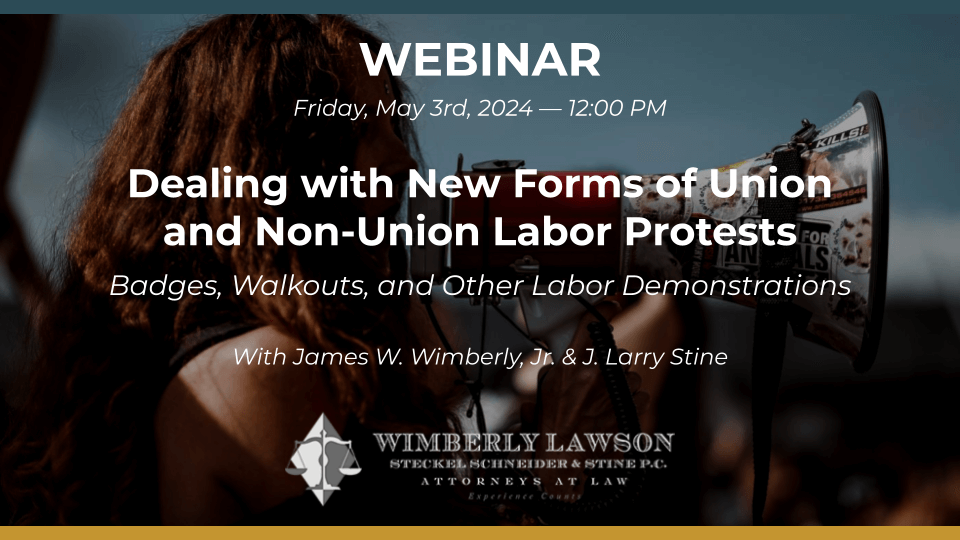THOUGHTS ON THE NEW SECRETARY OF LABOR AND THE EFFECT ON EMPLOYERS
One day after President Trump’s first nominee for Secretary of Labor withdrew, the President announced that Alexander Acosta would be his new Labor Secretary - Designate. The prior Labor Secretary - Designate, Andy Pudzer, had been the President’s perhaps most controversial appointment to the Cabinet. Not only was he president of various fast-food restaurant chains, but he was a highly-publicized advocate of management rights. In response, Democrats made him their primary target for opposition and an almost a "perfect storm" of adverse publicity caused even several Republican senators to have doubts. In this environment, on February 15, Pudzer withdrew his nomination and a day later the President appointed a person who is widely considered a "safe" nominee.
It is hard for anyone to say anything bad about Alexander Acosta. He is Hispanic and has been confirmed by the U.S. Senate three times in prior positions as a member (for eight months) of the National Labor Relations Board, as Assistant Attorney General for Civil Rights, and as a U.S. attorney for the Southern District of Florida. He is Harvard-educated and is currently the law school dean at Florida International University. He has even been a former law clerk for Supreme Court Justice Samuel Alito.
Both Republicans and Democrats have praised the nomination, and even organized labor has been somewhat supportive. Most commentators consider him a deep thinker and an intellectual, and he is likely to be affirmed by the Senate which is currently on recess through February 27.
How should employers react to the nomination of Acosta? In general, employers looked upon the prior nominee, Pudzer, as a leader and a "firebrand" for management rights. Many aggressive measures in support of management were expected. Acosta, on the other hand, is expected to move much slower to build more of a consensus, and to be more of a moderate. Such an approach is not all bad, however, as his changes are much less likely to generate the intense opposition that would have developed to anything Pudzer attempted.
Related Content
Get Email Updates
Recent Content

Judge Invalidates Joint Employer Rule, and Independent Contractor Rule Takes Effect

The Importance of Fairness in Employment to the Law and to Job Satisfaction

Major Employers Challenge Constitutionality of Labor Act

Starbucks' Big Change in Labor Policies

Judge Orders Survey Data to Be Revealed from Employer EEO-1 Reports

